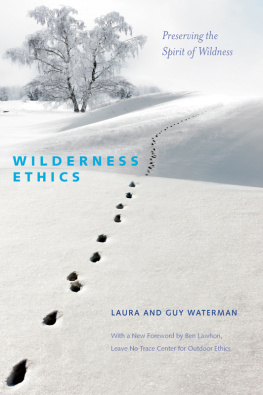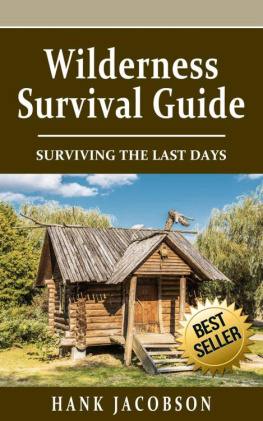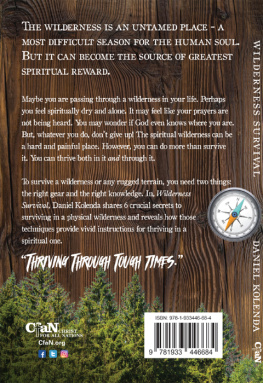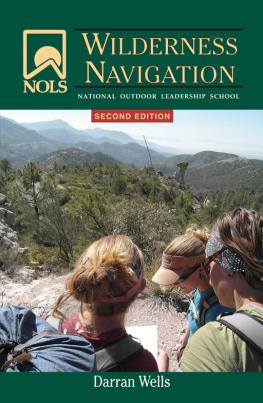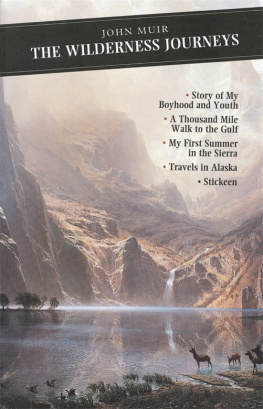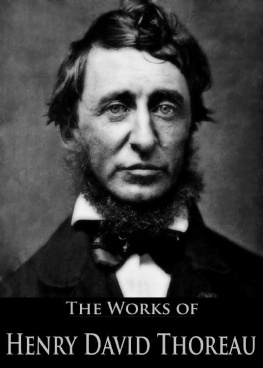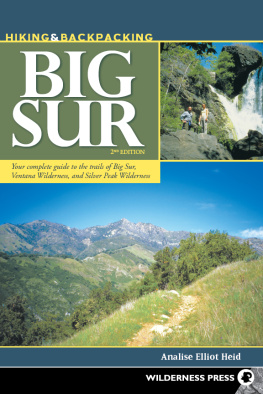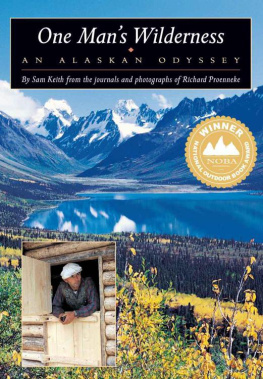More praise for Wilderness and the American Mind
One of those rare works that combines exemplary scholarship and readability.Washington Post Book World
This book is a mandatory prelude to any modern treatment of conservation problems. It does not purport to tell us where we go from here. But it reports in telling fashion how we got where we are and the nature of the forces that have driven us pell-mell toward a leveling of the wilderness.William O. Douglas, Natural History
Should be on every conservationists bookshelf.Living Wilderness
A masterly study of the wilderness mystique and the ambivalent American attitude toward the wilderness.Pacific Historian
A classic, unique in its field.... Wilderness and the American Mind provides a valuable service in reminding us that attitudes toward wilderness, like the wild lands themselves, are constantly changing.
William E. Shands, American Land Forum Magazine
The essential theme of the book is that a transformation has occurred in American thinking about wild placesfrom fear and hatred to appreciation and even reverencebut that such a change has not assured real protection of the remaining areas.... The book is both scholarly and readable. Much of the biographical information is interesting and the reader is likely to be surprised by the subtleties of American thinking about wilderness.American Historical Review
Among recent books on the long history of mans attitudes toward his primeval setting, with primary focus on the attitudes of Americans, the eminent volume is Nashs.American Quarterly
Wilderness, in the final analysis, is a state of mind, and the author critically describes mans attitudes toward a state of nature he feared, romanticized, felt he had to conquer and change, wished to preserve, used as a refuge from an unsatisfactory culture, and in most cases despoiled. The concepts are traced from the ancient symbol of the Garden of Eden to our present conservation controversies.
Books of the Southwest
Essential.... Nash provides a fair-minded synopsis of the thought of just about every American who has had something of substance to say on the subject.Fred W. Kohlmeyer, Journal of Forest History
This book continues to provide an excellent overview of the subject matter and in paperback makes a valuable textbook for the classroom.Science, Technology & Society
WILDERNESS AND THE AMERICAN MIND
Wilderness and the American Mind
RODERICK FRAZIER NASH
Fifth edition
FOREWORD BY CHAR MILLER

First edition published in 1967. Fifth edition 2014.
Preface and Epilogue copyright 2014 by Yale University.
Foreword copyright 2014 by Char Miller.
Previous editions copyright 1967, 1973, 1982, and 2001 by Yale University.
All rights reserved.
This book may not be reproduced, in whole or in part, including illustrations, in any form (beyond that copying permitted by Sections 107 and 108 of the U.S. Copyright Law and except by reviewers for the public press), without written permission from the publishers.
Yale University Press books may be purchased in quantity for educational, business, or promotional use. For information, please e-mail sales.press@yale.edu (U.S. office) or sales@yaleup.co.uk (U.K. office).
Printed in the United States of America.
Library of Congress Control Number: 2013949305
ISBN 978-0-300-19038-0 (pbk.)
A catalog record for this book is available from the British Library.
10 9 8 7 6 5 4 3 2 1
Contents
Foreword
CHAR MILLER
WILDERNESS is contested ground. As a physical reality, wild land has been mined, dammed, grazed, and harvested, as well as hiked, skied, and boated. These economic and recreational uses are vociferously defended and decried. As a cultural domain, wilderness is no less controversial. Those who have sought to preserve the naturalness of coastal, mountainous, or riparian landscapes, or to keep prairies, wetlands, forests, or meadows untrammeled, have fought with those who would exploit the resources that they contain. Because these battles draw in grassroots organizations, state and federal agencies, and national interest groups, and because these struggles play out over decades, you need a scorecard to keep track of the shifting arguments and alliances. There is no better place to begin to understand the intellectual roots, political sources, and social significance of these epic brawls over the meaning of wilderness than the thick book in your hands.
That Wilderness and the American Mind is now in its fifth edition, and has been in print since it first appeared in 1967, signifies the enduring character of the struggle to come to terms with the natural systems that sustain the United States. It tells you too that its author, Roderick Frazier Nash, has vividly depicted the tensions animating our conflicted relationship with wildernessand in doing so has given his many readers an analytical understanding of wilderness and a framework by which to engage with it. Not only did Nash capture the wilderness pulse of America, observes historian Michael Lewis, but he helped define that pulse, so that subsequent generations of environmental scholars and activists discussed American wilderness in Nashs terms, with his examples, and with his heroes. Thats the definition of a seminal, heuristic text.
Some of the lessons Nashs book teaches are derived in different ways from his many decades running whitewater rapids that churn the turbulent rivers of the American West, work that began while he was a Harvard undergraduate. For me, keeping an oar in the
I feel the same way every time I finish reading my dog-eared 1973 edition of Wilderness and the American Mind: by its heft, breadth, and ambitionnot to say its narrative sweepthe book overwhelms even as it beguiles. Start with its backstory. When Nash began his doctoral studies in 1960 at the University of Wisconsin under the direction of the legendary intellectual historian Merle Curti, there was no such thing as environmental history. Although some scholars and critics had written brilliantly about the human place in naturenotably Walter Prescott Webb, Henry Nash Smith, and Leo MarxNash realized that no one had explored the fundamental role that wilderness as wilderness played in the nations imagination. Curtis support of his approach to establish the cultural context that explained the popularity of the idea proved decisive, a perfect formulation for the book-to-come and one reason why it had such a profound impact on its first generation of readers. So did another lucky break: Nash convinced the university archives to hire him to gather, organize, and sort through the papers of Aldo Leopold, arguably one of the twentieth centurys most important conservationistsa perfect job for an aspiring historian committed to tracking alterations in Americans ideas about nature.
He does so by assessing the wilderness advocacy of such iconic writers as Henry David Thoreau, George Caitlin, John Muir, Aldo Leopold, and John McPhee and by unearthing pithy political speeches that extoll America the Wild. Newspaper editorials, like varied forms of artistic expression and cultural production, make good copy, as does the slow emergence of legislative initiatives designed to protect the public lands and the wildness they exemplified, culminating in the 1964 passage of the Wilderness Act. Nashs close attention to such an interdisciplinary array of sources, and to some of the quirky details they contained, sensitizes him to subtle changes in tone, texture, and temper.
Next page

